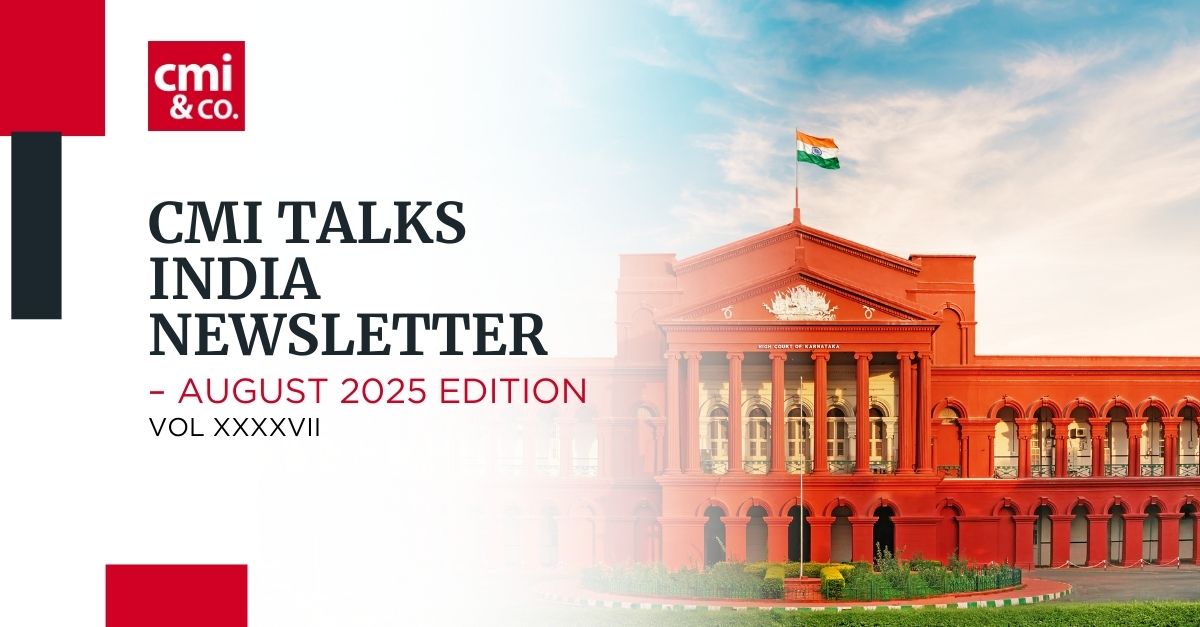SEBI revises framework for conversion of Private Listed Infrasturcture Investment Trusts (“InvITs”) into public InvITs.
The SEBI issued a Circular No. SEBI/HO/DDHS/DDHS-PoD-2/P/CIR/2025/114 dated 08.08.2025 (“InvITs Circular”) which has modified the framework for conversion of private listed InvITs into public InvITs.
Key Takeaways:
- SEBI has modified the Chapter 14 of the Master Circular dated 15.05.2024 which provides the framework for conversion of private listed InvITs into public InvIT on the recommendations of the Hybrid Securities Advisory Committee (“HySAC”).
- SEBI has streamlined the minimum unitholding requirements for sponsor(s) and sponsor group(s) by replacing the existing framework with direct references to Regulation 12(3) and 12(3A) of the InvIT Regulations.
- The lock-in provisions have also been aligned with Regulation 12(5) of the InvIT Regulations, ensuring consistency across the regulatory framework.
- The procedure and disclosure requirements for public offer of units to convert a private listed InvIT into a public InvIT have been aligned with follow-on offer requirements rather than initial public offering requirements.
- This includes substituting references from “initial” standards and offer procedures, requiring compliance with follow-on offer requirements under InvIT Regulations, updating disclosure requirements to align with follow-on offer standards, and modifying distribution disclosure requirements to include follow-on offer specific details.
- The recognized Stock Exchanges and Bharat InvITs Association are advised to disseminate the contents of this Circular on their website.
- The circular shall be applicable with immediate effect.
Lok Sabha introduces the Insolvency and Bankruptcy Code (Amendment) Bill, 2025 (“IBC Amendment Bill”).
The IBC Amendment Bill was introduced in the Lok Sabha on 12.08.2025 which amends the Insolvency and Bankruptcy Code, 2016 (“IBC”).
Key Takeaways:
- An explanation is proposed to be added to the definition of “security interest” as provided in Section 3 (31) of the IBC clarifying that that the security interest shall exist only if it creates a right, title or interest or a claim to a property pursuant to an agreement or arrangement, by the act of two or more parties, and shall not include a security interest created merely by operation of any law for the time being in force.
- It is proposed that corporate debtors lose right to nominate interim resolution professionals.
- The IBC Amendment Bill clarifies that sureties can not use subrogation rights to proceed against corporate debtor during moratorium.
- It introduces the concept of “cross-border insolvency” which seeks to lay the foundation for protecting stakeholder’s interests in domestic and foreign proceedings, promoting investor confidence and aligning domestic practices with international best practices.
- It has been proposed to be added stating that when the liquidation process of the corporate debtor is initiated, the committee of creditors shall also supervise the conduct of the liquidation process by the liquidator and the provisions applicable on the meetings of committee of creditors shall also apply to the liquidation process.
- Proposed Section 59A (1) of the IBC states that the Central Government may prescribe the manner and conditions for conducting group insolvency proceedings the provisions will be applicable when insolvency proceedings are initiated against two or more corporate debtors that form part of a group.
The revised Income Tax Bill, 2025 was passed by the Lok Sabha on 11.08.2025.
The Income Tax (No. 2) Bill, 2025 has been passed by both Houses of Parliament and is set to replace the Income Tax, 1961. The Income Tax Bill, 2025 which has been presented in the Lok Sabha on 13.02.2025 has been withdrawn.
Key Takeaways:
- The Bill proposes 01.04.2026 as the commencement date.
- It is intended to be aligned with the Existing Act on all aspects like scope of total income, computation and heads of income and tax rates, etc.
- The new bill clarifies that there will be nil TCS under the Liberalised Remittance Scheme for education-related remittance financed by a financial institution.
- Tax-payers with no-income tax liability can now apply for a nil-TDS certificate to prevent unnecessary deductions.
- The new tax bill also introduces ‘tax year’ as a formal term. It is defined as the 12-month period starting April 1.
- The latest version of the new tax bill reduces the number of sections from 819 to 536, and the chapters from 47 to 23.
The Parliament passed the Promotion and Regulation of Online Gaming Bill, 2025 on 21.08.2025.
The Promotion and Online Gaming Bill, 2025 has been passed to mark move to shield citizens from the menace of online money games while promoting and regulating other kinds of online games.
Key Takeaways:
- The legislation will apply to the whole of India and also to online money gaming service offered within the territory of India or operated from outside the territory of India.
- The Central Government has been given powers to recognise and register social games that are safe and age-appropriate.
- The Bill imposes a complete ban on online money games which includes games of chance, games of skill, and those that combine both. It also bans the advertising and promotion of such games.
- A national-level regulatory authority will be established, or an existing one may be designated for oversight. Its functions will include categorising and registering online games, deciding whether a game qualifies as a money game, and addressing public grievances.
- Offering or facilitating online money games can lead to imprisonment of up to three years and a fine of up to one crore rupees. Advertising such games can attract a jail term of up to two years and a fine of up to fifty lakh rupees.
- Repeat offenders face harsher punishments, including imprisonment of up to five years and fines of up to two crore rupees. Offences under key provisions will be cognisable and non-bailable, which means police can arrest without a warrant and bail is not a right.


